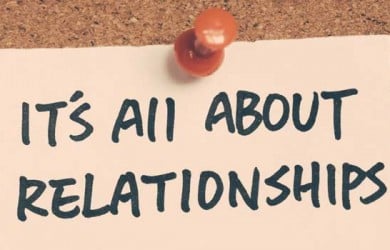SOS: Save Yourself First When Addressing Relationship Conflict

Unlock Daily 30-Sec Tips for a Happier Relationship
👉 Subscribe FREEKey Takeaways
Marriage.com AI Quick Summary
Is it possible for relationship conflict to be resolved between partners without rage? Can conflict exist without hurt and regret? What happens if your ego is bruised, or worse, physical violence occurs? Or, when the children are watching? What’s the limit you’re willing to take?
The answer is up to you and your partner. If there is violence during the relationship conflict, all bets are off. Physical and emotional safety comes first. However, if safety is not an issue, use SOS and the basic conflict resolution method as ways to resolve conflict. This will help you improve the way you and your partner approach and manage the situation.
Establish SOS.
What is SOS? SOS is a quick mnemonic to remember to prioritize self-care, remain objective, and treat yourself and others with respect when faced with conflict.
Self-Care
Self-Care requires putting on your own oxygen mask first. Eat well. Get enough sleep. Talk to supportive people regularly. Exercise. People in stressful situations sometimes neglect self-care. Be gentle on yourself, but remember, stressful conversations can become combative when a person feels depleted. Don’t find yourself gasping for air.
Objectivity
State directly what you need or want from another person. Be clear about what you are asking for, but try not to phrase it as a question. Before entering a potentially heated conversation in order to salvage a relationship, think through what you believe is possible and realistic. Stick to your statement and place trust in what you determine is true. Understand why you think and feel the way you do. Allow your rational mind to speak for your emotional mind to prevent emotional flooding.
Self-Respect
Self-respect happens when a person feels calm and in control. You may not be able to control the outcome of a situation, although entering it calmly will help you navigate through a potential storm. When a person feels threatened, they tend to resort to a fight or flight reaction. Remaining calm will help you determine if there is an actual threat or a situation where partners differ but can listen to each other and respond non-aggressively. If you treat your partner with respect and find a way to work together, no one needs to drown.
Addressing relationship conflict: How do you handle conflict
There are two steps to basic relationship conflict resolution.
In order to fix relationship problems, first, set-up the environment so that it is conducive to discussion.
Meet in-person if possible. Texting is a poor substitute for face-to-face conversation as a way of conflict resolution for couples. Plan your meeting during a low-stress time of the day. If the only time available is after work, take a break, relax, or have a meal before you talk about a difficult topic. Tell your partner in advance what it is you plan to discuss. If it is the first time you are using the model of conflict resolution in relationships, explain it before you begin.
Step two is engaging in the conflict resolution process.
Enter the relationship resolution of the conflict with clear intent and an open mind. State what is you need or want from the other person. Ask the other person to repeat what you have said back to you. Once you are sure that your partner understands what you need or want, they can ask questions to strengthen and deepen their understanding.
Then it is your partner’s turn to talk and your turn to listen, ask questions, and understand your partner’s point of view. When both parties feel they have been heard and understood, discussion begins. The goal is to open a dialogue and slow the process down. You may or may not come to an agreement the first time you talk about a topic, but eventually, the purpose is to come to a decision that both of you can live with.
This is where the “O” (“Objectivity”) in SOS matters most. Make a clear, direct statement and be consistent about what you need or want. Remaining calm, rational, and grounded will help you stay on topic.
It is advisable not to get angry but rather communicate and compromise to arrive at a conclusion mutually. It is also important to understand that conflict is also a beauty. What if the relationship conflict is not a problem? In the video, Clair Canfield identifies some of the ways we get stuck in the trap of justification and also provides hope for a new way of approaching conflict.
Some partners are particularly challenging when it comes to resolving relationship conflict. They may say they are willing to use relationship conflict management skills, but their real goal is to “win” at any cost. They will attempt to make you feel like you are worthless, or beg and plead with you, or threaten a negative outcome if you don’t concede.
People like this may have experienced a traumatic relationship prior to their relationship with you. They may feel a need to defend themselves or put you down in order to avoid being hurt again. Couples therapy or mediation (in the case of divorce) could be your best option for resolution of relationship conflict in this case.
Everyone can expect to fall out of the lifeboat occasionally. When you do, climb back in. If your partner refuses to swim, it’s not your fault. You have done your best, and in the end, if all else fails, focus on saving yourself.
 Tips
Tips
Write your tip or submit a video tip
All tips are reviewed before the publishing.
Share this article on
Want to have a happier, healthier marriage?
If you feel disconnected or frustrated about the state of your marriage but want to avoid separation and/or divorce, the marriage.com course meant for married couples is an excellent resource to help you overcome the most challenging aspects of being married.
Related Articles
Recent Articles
Related Quizzes
Unlock Daily 30-Sec Tips for a Happier, Healthier Relationship
👉 Subscribe FREE on YouTube We'd love your feedback!
We'd love your feedback!
 Expert Q&A
Expert Q&A
Ask your question related to this topic & get the support you deserve from experts.



















 Thanks for your feedback!
Thanks for your feedback!